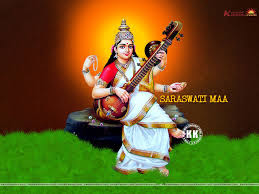Vedantam for Beginners -1 : 19, 20 & 21-1.
29/11/2018
19. The Nature Of The Jnani :
The Jnana Yogi practises neither Pratyahara nor Chittavritti-nirodha like the Raja Yogi. He tries to behold the One Undivided Essence of Satchidananda in all names and forms. He stands as a witness or Sakshi of all the Vrittis. All Vrittis gradually die by themselves. The Jnani’s method is positive (Samyagdarshana), whereas a Raja Yogi’s method is negative (Nirodha).
There is no body from the Drishti or view of the sage. How can there be Prarabdha then, for a Jnani? The Jnani is one with the Absolute and hence no change takes place in his being. He is Santam, Sivam and Advaitam. He is a Jivanmukta. He is liberated in this very life itself. His body is like a burnt cloth or a sword that is changed into gold through the touch of the philosopher’s stone. His ego is burnt by the fire of Supreme Wisdom.
20. Vedantic Assertions :-
1. Prajnanam brahma = Consciousness is Brahmam.
2. Aham brahmàsmi = I am Brahmam.
3. Tattvamasi = That thou art.
4. Ayamàtmà brahma = This Atma is Brahmam.
5. Sarvaü khalvidam brahma = All this, indeed, is Brahman.
Om Santi! Santi! Santi!
21. Philosophy Of Raga-Dvesha : 1.
Raga and Dvesha (likes and dislikes) only constitute this Samsara or this world of phenomena. It can be totally destroyed by knowledge of Brahman.
Raga-Dvesha is a Vasana. It has four states. Raga-Dvesha, Vasanas, Samskaras and Gunas are intertwined. They co-exist. The seat of Raga-Dvesha is the mind and the senses. Destruction of one will lead to the destruction of others. But the destruction of the source, Avidya or Ajnana, the seed of Samsara, through Brahma-Jnana will destroy everything to the very root.
The cultivation of virtues like Maitri (friendship), Karuna, (mercy), Mudita (complacency) and Upeksha (indifference) can thin out or attenuate Raga-Dvesha. This is the Pratipaksha-Bhavana method or cultivation of the opposite positive qualities, of the Raja Yogins.
Destruction of Avidya will lead to the destruction of. Raga-Dvesha. Raga and Dvesha are the modifications or effects of Avidya or ignorance.
The fire of devotion also can burn in toto Raga-Dvesha.
The practice of Nishkama Karma Yoga or disinterested selfless service can thin out Raga-Dvesha to a very great extent.
Kill Raga (attachment) by the sword of Vairagya (non-attachment or dispassion or indifference to sensual objects) and Dvesha by developing cosmic love.
To be continued ...





Comments